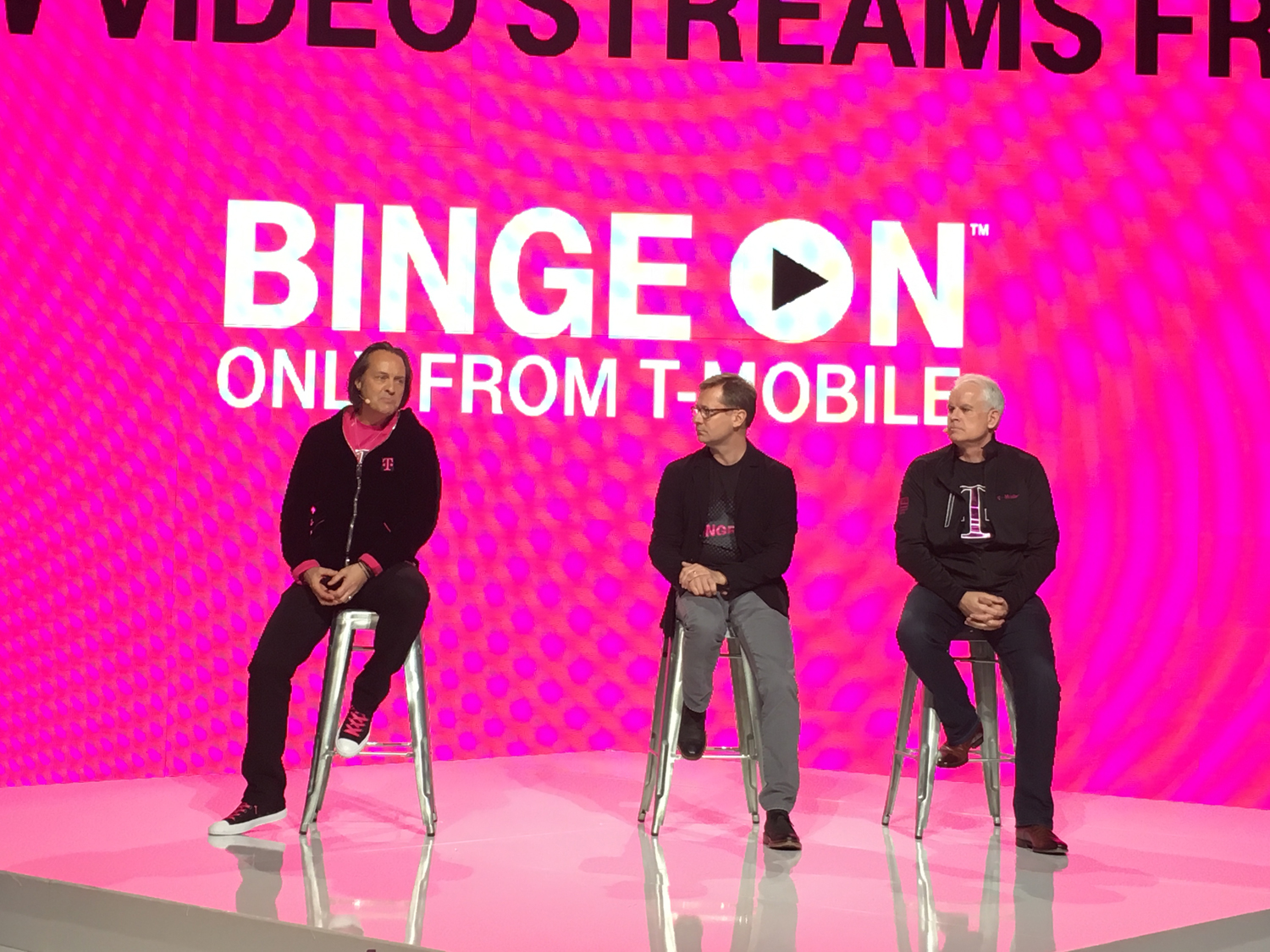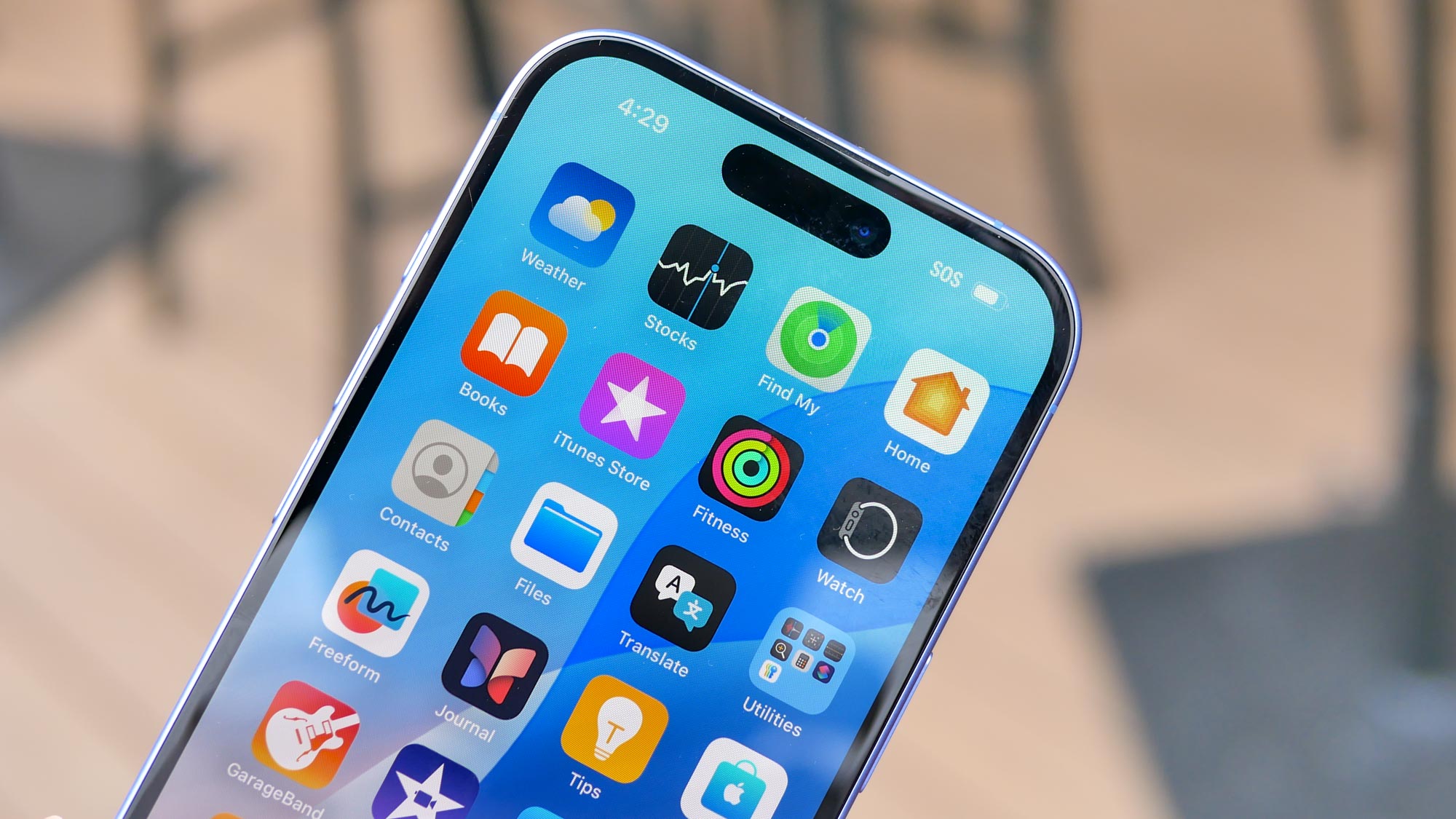Are Unlimited Data Plans Still Worth It?
They're expensive and not as common as they used to be, but unlimited data plans give high-bandwidth users peace of mind. Are they still worth it?
Half the major carriers have done away with unlimited data plans, and the ones that remain are getting more expensive. If you're looking for an unlimited data plan or you're wondering if you should give yours up, you've got a lot to consider.

Unlimited data plans give customers the freedom to go nuts on LTE data consumption, but to a point. Most carriers slow down your speeds after about 20GB used. (The exact amount at which throttling kicks in varies from carrier to carrier.)
Sprint recently raised the price of its unlimited data plan from $60 to $70, while T-Mobile upped its fee from $80 to $95. Verizon and AT&T haven't offered unlimited plans to new customers for years, but existing subscribers are seeing the cost of their grandfathered unlimited plans rising: Verizon hiked the price for its unlimited data pack by $20 to $50 a month, while AT&T announced plans to bump the monthly fee for unlimited data from $30 to $35 in early 2016.
Those looking to get TV service with their wireless subscriptions can get unlimited data with AT&T's new Unlimited Plan. You'll get unlimited talk, text and data for $100 a month ($60 for data, $40 for access fee), plus an additional $40 a month per line on the plan. AT&T lets you add a fourth line at no extra cost. However, you'll have to be an existing DirecTV or U-Verse subscriber to be eligible for this package, or sign up for the TV service.
With the price increase and 20GB limits, are unlimited plans all that attractive anymore?
MORE: Which Carrier Has the Best Plans?
Unlimited? More Like Unnecessary
What's the appeal of unlimited data plans? It's like paying slightly more to have a buffet lunch instead of a slightly cheaper two-course meal. The unlimited data buffet is for those who generally have larger appetites and don't want to worry about running out of bytes.
"The majority of users don't really need unlimited data." -- Lynette Luna, Current Analysis
Those who are grandfathered into their unlimited plans may also feel as if they will not get a better deal on another package. "Grandfathered plans seem like more of a security blanket for them," said Lynette Luna, principal analyst at Current Analysis' consumer group.
But do you really need it? "It's a nice marketing tool because it gives customers comfort in knowing they won't go over (although they are throttled)," Luna said. "The majority of users don't really need unlimited data."
Plus, with AT&T, Sprint and T-Mobile, you don't really get true unlimited data. AT&T slows your speeds after you hit 22GB, while Sprint and T-Mobile throttle after 23GB. Sprint, T-Mobile and AT&T told us that throttling occurs after an unlimited subscriber goes over that limit during a billing cycle and then only in areas where there's network congestion.
T-Mobile states on its website that it throttles "to ensure that [it's] providing a great experience for [its] customers." Verizon is the only Big Four carrier to not throttle unlimited-data customers.
The Cost of Unlimited Data
Only two of the Big Four carriers continue to offer unlimited data plans: T-Mobile, at $95 a month, and Sprint, for $70. AT&T and Verizon stopped offering unlimited plans for new service in 2010 and 2011, respectively, but consumers already on those lines have been allowed to hang on to their plans.
AT&T's unlimited-data offering costs $30 a month (until February 2016, when it will become $35 a month), while most of Verizon's customers started paying $50 a month for unlimited data on Nov. 15. Before that, Verizon charged $30 a month, and a small amount of users still on contract will continue paying that till their plans expire. Both carriers' data prices exclude talk and text, and your overall monthly bill will vary wildly, depending on the number of add-ons you get.
For instance, two members of the Tom's Guide staff are on unlimited-data plans on AT&T and Verizon, and they pay $80 and $105, respectively, once you add in miscellaneous fees, surcharges and taxes. Leave out those, and our AT&T subscriber pays $5 a month for 250 texts on top of his $30 monthly data fee, a $10 monthly line access fee and splits $50 with one other person for 700 minutes of talk time. That's a total of $70.
Our Verizon-using colleague gets 450 minutes for $40, mobile insurance for $7 and unlimited messaging for $20 on top of the $30 he pays for unlimited data. That adds up to $97 before miscellaneous fees and surcharges.
Overall, the grandfathered unlimited plans aren't all that much cheaper than existing unlimited options. The most affordable of all right now is Sprint's, but the carrier's LTE network could give you pause. Sprint came in last among the Big Four carriers on our nationwide 4G showdown, although the provider says that its LTE Plus network offers improved performance.
The only other option available to those not already on an unlimited plan is with T-Mobile, which came in second in our 4G tests, but at $95, its unlimited plan is relatively costly.
Will Unlimited Stick Around?
Most carriers would love nothing more than for customers to ditch unlimited plans in favor of tiered monthly limits. Having high-traffic customers clogs up a carrier's network. "AT&T and Verizon want to phase them out but don’t want to upset customers," Luna said.
Luna believes carriers are going to keep raising the rates on grandfathered unlimited plans, not allowing device financing and continue to encourage customers to move over to other plans. "Once a significant number of subscribers have moved over to shared plans, I suspect AT&T and Verizon will phase these out," she said.
Already, less than 1 percent of Verizon's customers remain on its unlimited data plans.
Is Unlimited Worth It?
If you are one of the few who are still on Verizon's $30 monthly unlimited plans, and you have a massive appetite for data, staying on the grandfathered plan may make sense. The carrier's no-throttling policy gives you the freedom to really go crazy with downloading or streaming videos and games.
Even if you have to pay $50 a month instead of $30, those with very high data demands should still opt to stay. Verizon came in tops in our nationwide 4G tests, so going unlimited with Verizon would be like, as one of the company's reps told me, "Driving a new Porsche on a freshly paved superhighway with an unlimited gas tank." That speed, combined with the company's no-throttle policy, gives you the fastest and largest allowance of 4G LTE on the market.

Depending on what you need data for, you can opt for one of T-Mobile's Simple Choice plans. The Uncarrier's BingeOn program lets you stream Netflix, Hulu, ESPN, HBO Now and more than 20 similar services for free without the bytes counting against your monthly allowance. Its Music Freedom program does the same with 44 music-streaming services, and its Data Stash gifts you with 20GB of LTE and lets you rollover unused data to store for up to 12 months.
These features are all available starting with the company's 6GB Simple Choice plan, which starts at $65 a month and includes unlimited talk and text. With all these goodies, it's almost as if you're getting unlimited data for less than what Sprint would charge you.
What Should I Do?
Go to your carrier's website or app on your phone to look up your monthly data consumption. If you're one of the majority of people who use about 3GB a month, consider switching to a cheaper line, such as Verizon's Medium (3GB) or Large (6GB) plans for $45 and $60, respectively.

If you consistently use more than 10GB of data, and are grandfathered into Verizon's unlimited plans, you should stay. Although Sprint and T-Mobile offer unlimited data with unlimited talk and text for less money, Verizon still has a wider and faster network, and it doesn't throttle you.
AT&T currently charges $50 a month for 5GB or $100 for 15GB; the 5GB plan includes a $25 access fee, while 15GB users pay $15 a month for access. In either case, that’s more expensive than existing unlimited plans, even when you factor in unlimited talk and text.
Those looking for the most bandwidth for the least money should consider T-Mobile, which rewards customers with plenty of free data and content streaming at no cost.
Sign up to get the BEST of Tom's Guide direct to your inbox.
Get instant access to breaking news, the hottest reviews, great deals and helpful tips.
Cherlynn is Deputy Editor, Reviews at Engadget and also leads the site's Google reporting. She graduated with a Master’s in Journalism from Columbia University before joining Tom's Guide and its sister site LaptopMag as a staff writer, where she covered wearables, cameras, laptops, computers and smartphones, among many other subjects.
-
brettschulte The best deal on unlimited is MetroPCS (T-Mobile) for $55/month all fees included (with auto pay).Reply

